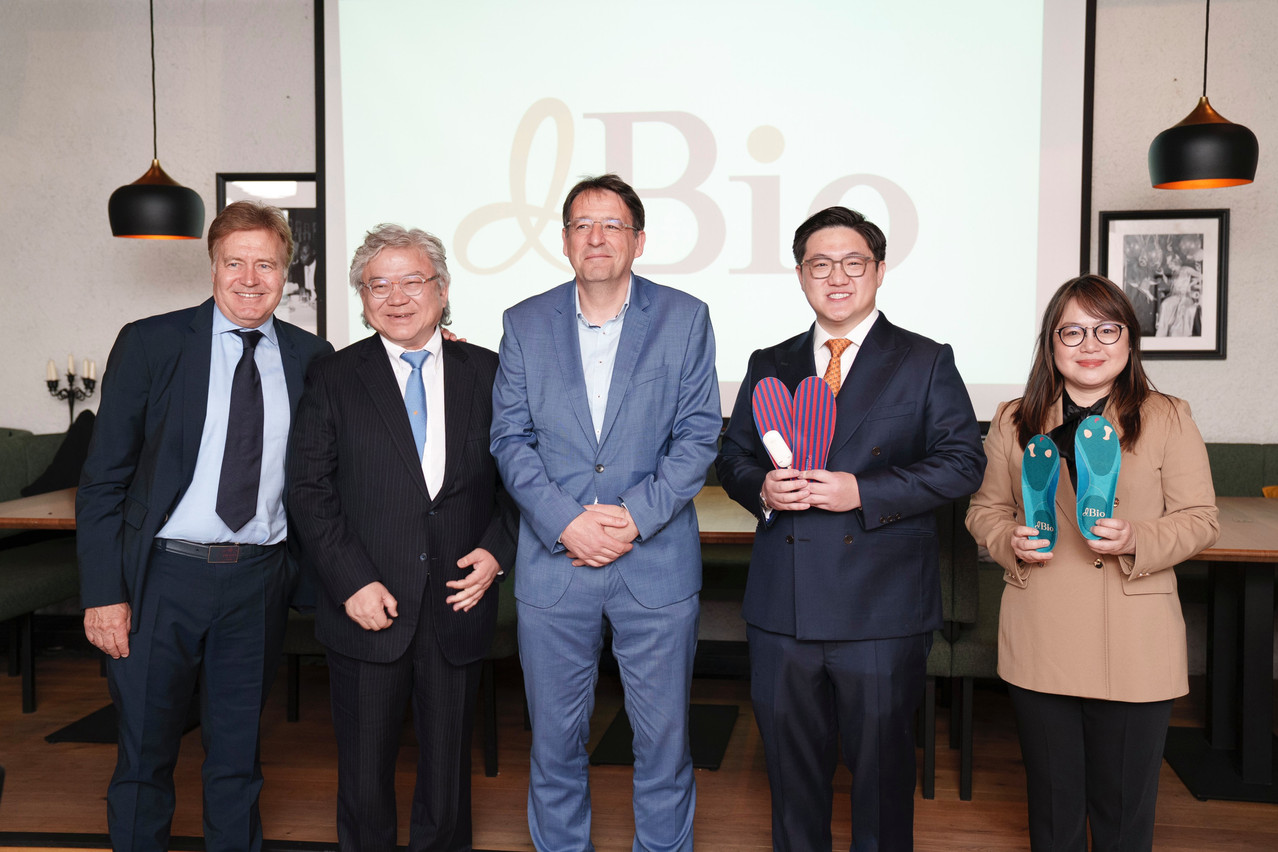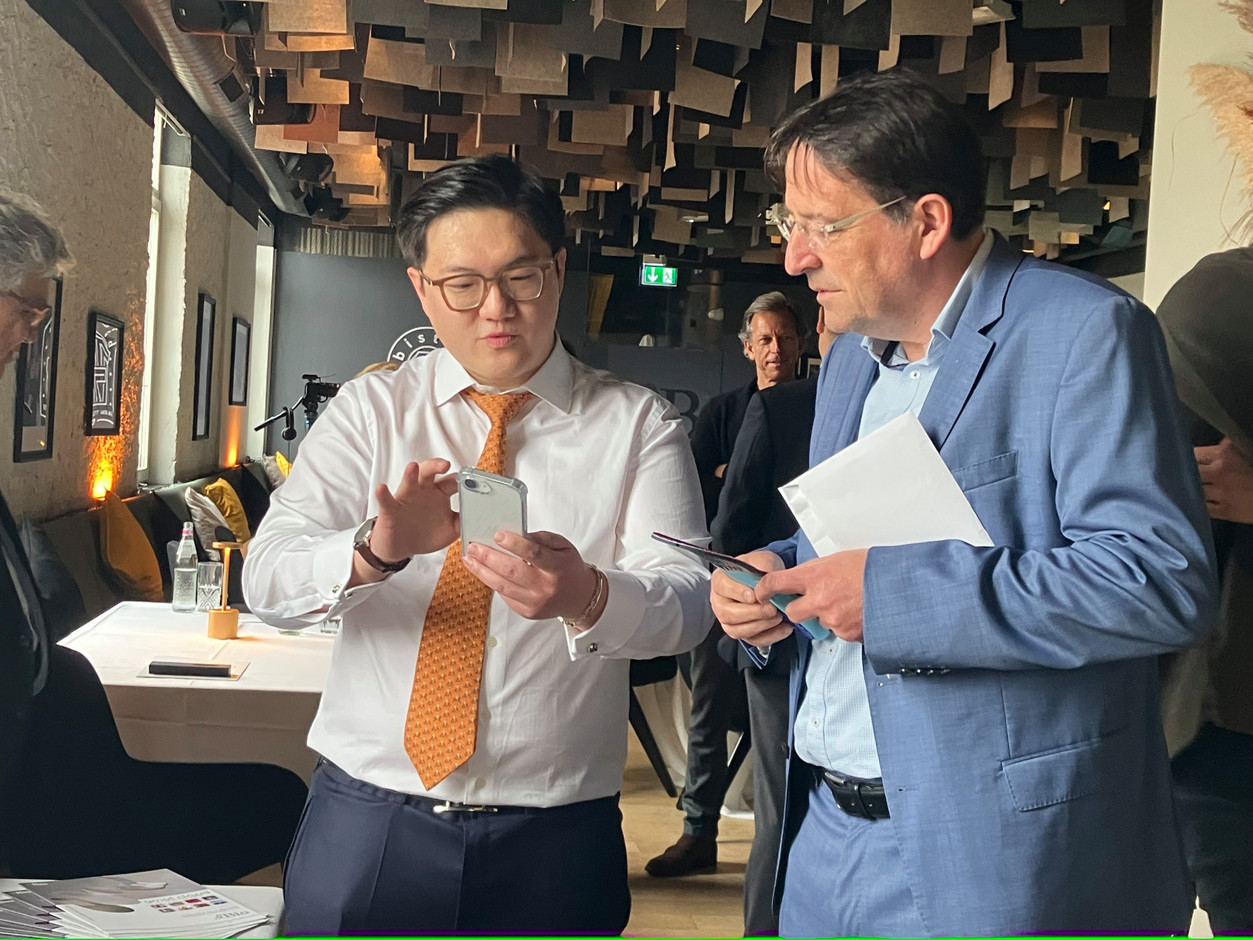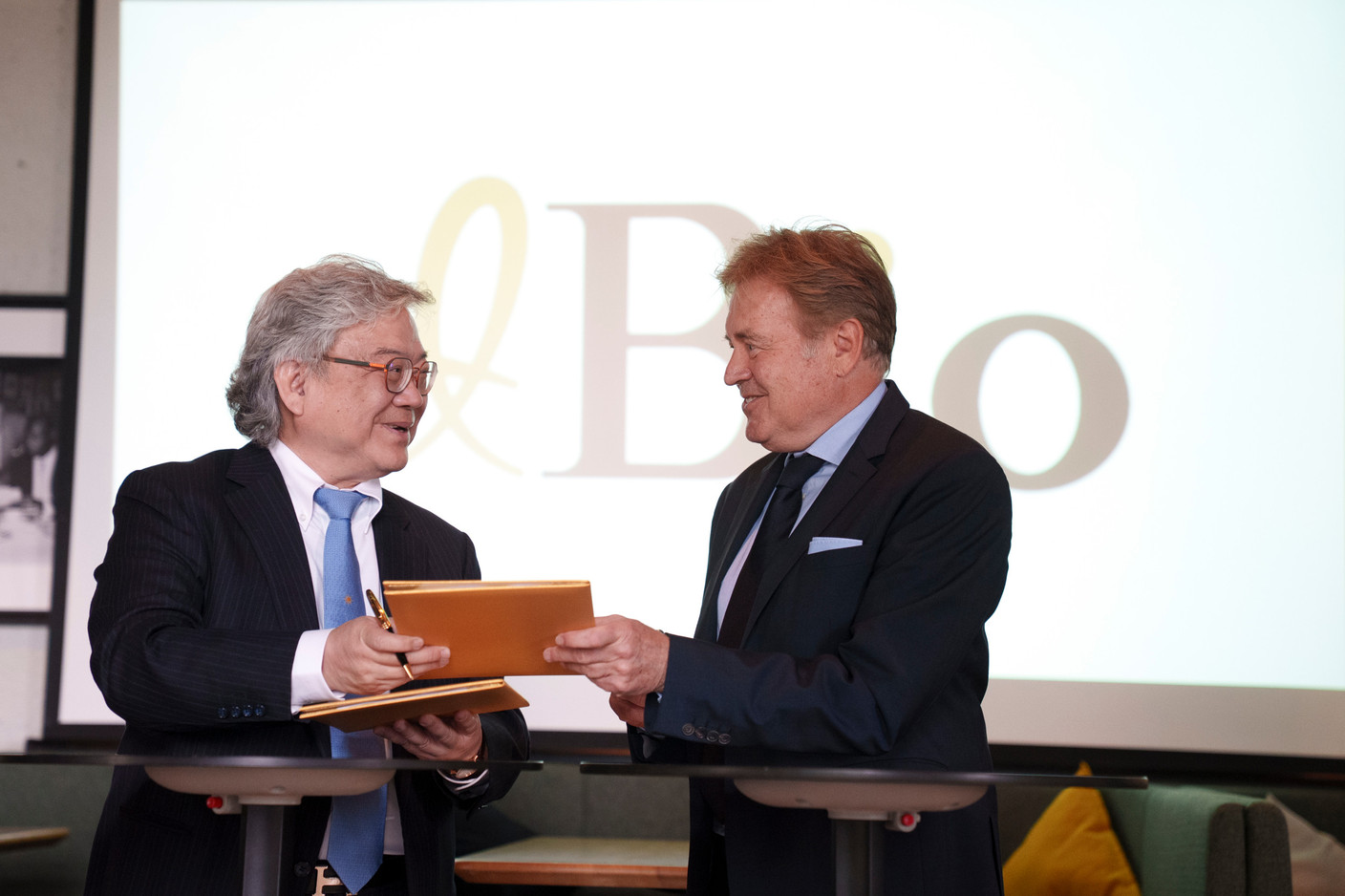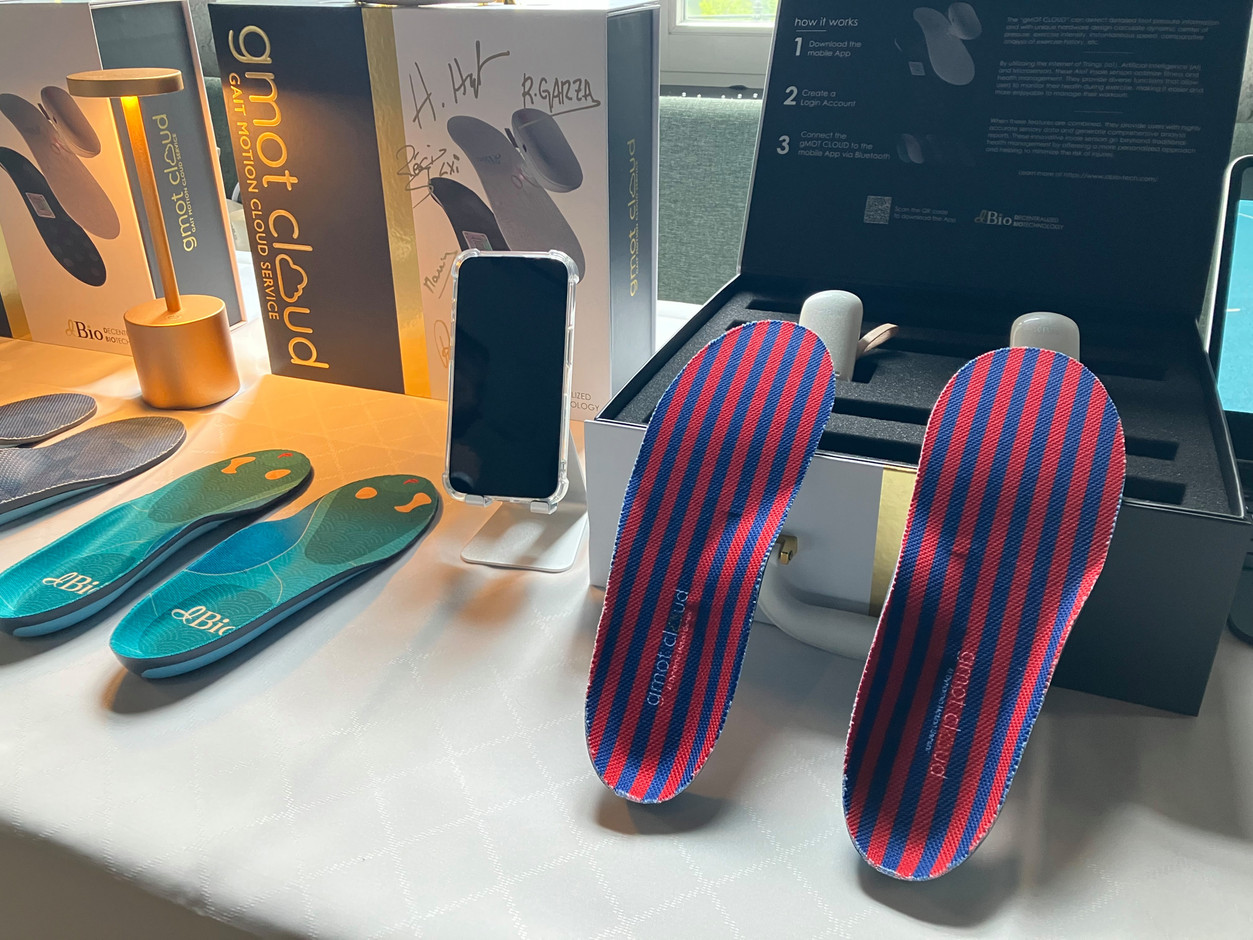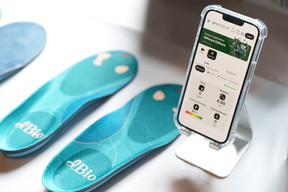The health app on your phone that counts the number of stairs you’ve climbed, the smartwatch that measures your heart rate whilst you go for a run, a smart-ring to track your sleep patterns--all of these devices, says the team behind the Taiwanese healthtech Dbio, are not accurate enough, have limited features and can intrude upon your daily life. Their solution: to develop wearable tech that employs AIOT (artificial intelligence of things) in order to collect better data and improve the lives of users.
Dbio has developed, for instance, the GMOT Cloud, a “smart” insole with sensors that slides into a shoe and provides information on a user’s gait, foot pressure, centre of gravity, exercise intensity and caloric expenditure. This type of tech could be used for high-performing athletes like football players, golfers or cyclists, but also for people in their daily life, explained Edward Chou, chief of marketing strategy at Dbio. Its mobile app records data from the insoles, then provides analyses, feedback and training-related suggestions. The insoles are thin and flexible, are specially designed so as not to interfere with daily life, and--on average--can be used during a 24-hour period before requiring a recharge.
The Taiwanese healthtech on Thursday 24 April 2025 announced that it would set up its European headquarters in Luxembourg, along with an AI research centre that will serve as a hub for innovation in digital health and wearable technology. Representatives of the company had actually spent the day before visiting sites in the country that could serve as a potential location for its research. Dbio would need roughly 100 to 150 square metres in order to provide enough space for equipment and to run tests and simulations, said Chou, who added that the national innovation agency Luxinnovation and the Luxembourg Trade and Investment office in Taipei had been very helpful during the company’s journey to the grand duchy.
“There’s a huge dedication and commitment from the Luxembourg government when it comes to digital health,” he said, “and that’s one of the reasons we came here.” Chou added: “That was a super huge opportunity for us, and with all the support that all the agencies have been showing us, it’s definitely a fuel for why we’re here.”
“I’m quite convinced that Luxembourg is a good hub for developing activities here, and to also conquer the European market,” Luxinnovation CEO said during the press conference. The grand duchy is “well-positioned” in the heart of Europe, is located close to big markets (like Germany and France), and has a multi-lingual, multicultural workforce. The Luxembourg government has invested heavily in digitalisation and the data economy over the past few years, and “we are strong believers that data will really change the economic world, in all the different sectors. And the health sector is definitely one of those sectors where data is playing a key role.” Luxembourg has invested in data centres--something that is key for the financial centre, he noted--but is also crucial for sectors like industry or health.
When it comes to artificial intelligence, said Grotz, “we know that we cannot afford to invest in all the different sectors in all the different domains, but we have to select very carefully the niches where we are going to invest in. And today, we have selected four to five niches. The official AI strategy will only be published next week, but I can already tell you that the health sector will be part of this.” Dbio’s activities--collecting data to improve health--fit well with the government’s strategy. “We are very, very happy that you have chosen Luxembourg as your future home for European activities,” he said, before joking, “Now, I would be even more happy if you choose Liverpool as one of your first customers!”
Hubertus Hoyt joins as board advisor
Dbio also welcomed Hubertus Hoyt, former vice president and general manager of Nike Western Europe and EMEA, as board advisor. A former professional tennis player, Hoyt has also held executive roles at Puma.
For high-performing, elite athletes, health and exercise data such as that provided by Dbio’s tech can be very valuable. “If you want to win the Tour de France, you need this data, and your teams need this data,” he argued. “There are people that are obsessed by how to get that little half-a-percent better.” And sometimes, it’s that half-a-percent that separates the athlete on the top of the podium from the athlete who places second.
But Dbio’s tech is not just for athletes, Hoyt noted: the data that is collected can also help people who have been injured and improve their rehab exercises. The company has also developed the “Stethocloud,” a wearable device that weighs 15 grams, records a user’s heartbeat throughout the day, and is designed to provide more data on cardiovascular health and potential abnormalities. “Eventually, we want to be able to work with the medical community.”
Indeed, Dbio--which is a member of the American Heart Association’s Center for Health Technology & Innovation and the Global Sports Innovation Center powered by Microsoft--is already working with medical research institutions in Taiwan. The company, for instance, works with pulmonologists, COPD patients, neurologists and patients with Parkinson’s disease, said Chou, looking into how the gait assessment tech could play a role in their treatment.
Dbio currently employs around 25 people in Taiwan, from AI and hardware specialists to professionals with a background in semiconductors who worked on minimalising the sensors in the insoles. Their technology is patented and “everything is done in house,” said Chou, who also emphasised the company’s focus on keeping user data secure. Once set up in Luxembourg, he concluded, the company aims to recruit local talent as well.
